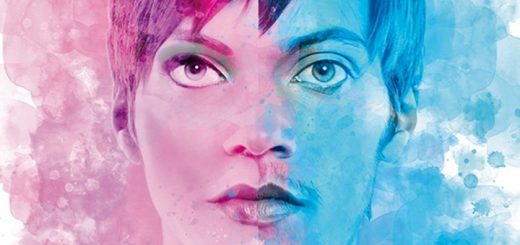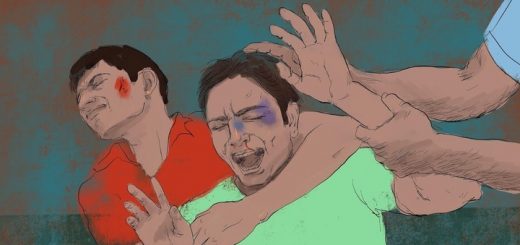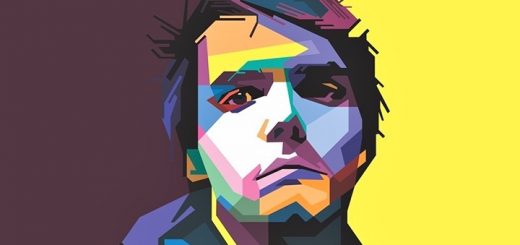Do you feel guilty because you are gay or lesbian?
The way in which each of us relates to others is influenced by the family, social and moral conditioning that we suffer throughout our lives, as well as by our fears and our reference models.
For example, in the society in which we live, sexist conditioning is very strong: at birth, girls will receive a nice pink bow and, once they become adults, they will be expected to dedicate themselves to their family, take care of the house, prepare desserts, are submissive, subordinate, vulnerable; males, on the other hand, will have a blue ribbon and, as adults, will support the family with their work, they will be strong, active, decision-makers.
Society prepares for us a destiny dictated by widespread conventions or beliefs, as if all human beings were equal and possessed certain innate characteristics. We know well that since childhood, family, social and moral conditioning teaches us that homosexuality is something wrong.
Those who begin to notice their diversity since childhood, and will find confirmation of this in adolescence when their first sexual impulses and first loves lead them where they "shouldn't", will develop a sense of shame due to the observation of the discrepancy between what actually exists and what one should be. What one should be based on the dictates of a superior authority (family, society, morality), learned and accepted without any critical spirit, like other conditioning (for example: "beauty = thinness = promise of happiness" ).
The mechanism by which shame develops is as simple to explain in words as it is difficult to deal with when you find yourself involved. The assumption that "different" is the same as "dangerous" is also part of this logic: a sort of logic of self-preservation of the status quo which deprives legitimate recognition and indeed bans those who, being different, go beyond those pre-established patterns and from the resulting expectations.
The same expectations for which a mother and a father expect their daughter to meet a man at a certain point in her life, get married to him and give birth to many grandchildren.
For a homosexual, therefore, it will be quite easy to form a deep belief (core belief) of the type: "I'm different = I'm inadequate“. A gay or lesbian who has felt prejudice and negative attitudes towards homosexuality around him since childhood is naturally led to internalize part of all this, ending up feeling "wrong" as a homosexual. This is even more true as gays and lesbians generally grow up without positive role models and in most cases without being able to find adequate support in their family of origin.
You are not homosexual because you are the child of homosexuals or because you belong to an ethnic group, as happens in other types of discrimination. The homosexual is discriminated against without being able to obtain the comfort of his family, which in the majority of cases does not provide the necessary support to face with serenity the heavy conditioning to which he is subjected, nor on the other hand are there social structures external to the family that can make up for this deficiency.
At the basis of anti-homosexual prejudice there are multiple factors, including the lack of contact with gay and lesbian reality, conformity to dominant social norms, the presence of belief systems based on conflicting values (think of the doctrine of the Catholic Church) , the rejection of existing differences within society in order to strengthen and justify one's point of view.
L 'homophobia however, it is not just a problem confined to individual prejudice, but is reflected in the supporting structures of our society (the family, school, work environments, the means of communication, etc.).
That is, it is institutionalized discrimination; the main consequences of this phenomenon are the limitation of the civil rights of homosexuals, the ghettoization of gays and lesbians in spaces and places reserved for them, the denial of a homosexual culture, the existence of legislation unfavorable towards homosexuals when not persecutory ( in many states homosexual acts continue to be punished with prison or corporal punishment).
Anti-homosexual prejudice and discrimination are so pervasive and powerful that homosexuals themselves often develop negative feelings towards their own sexual orientation, convincing themselves that homosexuality is wrong, to be hidden, to be denied and forming an image of themselves characterized from low self-esteem, we can talk about internalized homophobia.
Who is affected by internalized homophobia he has difficulty peacefully accepting his sexual orientation, to the point of complete denial of this orientation. In everyday life he tends to judge himself negatively and often looks with disapproval at the gay movement's attempts to obtain greater rights for homosexual people.
He is worried that others will discover his homosexuality, sometimes pretends to be heterosexual and often fails to develop a healthy relationship as a couple. He would like to become heterosexual and may have made some psychotherapeutic attempts in this regard. Over time, he or she may develop anxiety, depression, drinking and eating problems, social anxiety and sexual disorders.
Exasperated, disruptive pride is the other side of the coin: homosexuality is either hidden or shouted out. In other words, it is a dysfunctional behavior like avoidance, a response to the suffering of being different. How can the vicious circle be broken?
As we explained previously, numerous family, social and moral conditioning can often inhibit a direct expression of our personality. Passivity or aggression are consequences of some ideas, convictions or beliefs that have been consolidated since our childhood. We will learn to flush them out and then correct them. We will learn to "decondition ourselves" from the conditioning of a "good education" and to "recondition ourselves" towards thoughts and behaviors that are more functional to achieving our objectives, and therefore to supporting our legitimate rights.
There is a concrete possibility of learning, at any age, new ways of thinking and consequently new behaviors. Our change will begin when we decide to stop blaming others, life, parents, adverse destiny and, without making excuses anymore, we will take the responsibility of having the power to change.
.
Bibliography
-“Towanda! Psychology”, n°7 September/November, 2002
– “Homophobia – prejudice, institutionalized discrimination, internalized homophobia”. Proceedings of the two-day event organized by the “Jacob's Ladder” group, 20-21 November 2004






